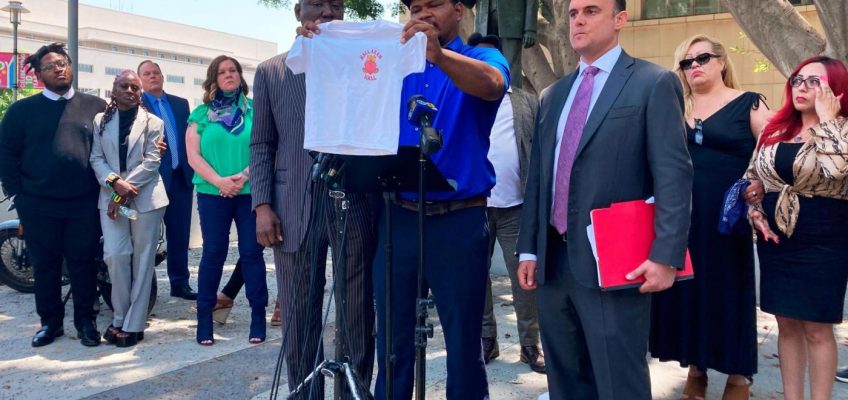By MICHAEL R. BLOOD and AMY TAXIN, Associated Press
LOS ANGELES (AP) — Los Angeles County has reached a $4 billion agreement to settle nearly 7,000 claims of sexual abuse in juvenile facilities since 1959, officials said Friday.
The agreement, which still needs approval from the Los Angeles County Board of Supervisors, far surpasses a $2.6 billion settlement reached in 2022 with Boy Scouts of America that was the largest aggregate sexual abuse settlement in U.S. history at the time.
“On behalf of the County, I apologize wholeheartedly to everyone who was harmed by these reprehensible acts,” Fesia Davenport, the county’s chief executive, said in a statement.
The agreement would settle lawsuits filed by thousands of people who alleged they were mistreated and sexually abused in foster care and juvenile detention facilities in Los Angeles County. The plaintiffs were able to sue because of a California law that took effect in 2020 and suspended the statute of limitations for childhood sex abuse victims to bring cases for three years.
Many of the claims involved the MacLaren Children’s Center, which was closed in 2003. The facility, which was intended to be a safe space for children awaiting placement in foster homes, opened in 1961 and was overseen by probation officials until it was placed under the county’s Department of Children and Family Services in 1976.
One man said he was sexually abused by a physician at the facility when he was 8 years old, while another said he was assaulted by a male staff member in a bathroom when he was 5. Children were routinely placed in solitary confinement, drugged and restrained in chairs at the facility, according to court papers filed by plaintiffs.
“It is bittersweet for the survivors, because nothing is ever going to take away what was done to them, and how badly their lives were altered and how much they have suffered,” said Adam Slater, one of the plaintiffs’ attorneys. “However, the settlement hopefully gives them some measure of justice and provides them with some measure of closure.”
Other private and public entities have been rocked by allegations of wide-ranging abuse and subsequent settlements.
The 2022 settlement by Boy Scouts of America, which recently renamed itself Scouting America, involved more than 80,000 men who said they were molested as children by scouting leaders and others.
And last year the Archdiocese of Los Angeles agreed to pay $800 million to victims of clergy sexual abuse, bringing the total payout to more than $1.5 billion.
Disclosure of the massive tentative payout by Los Angeles County comes at a time when the nation’s largest county — home to about 10 million residents — is facing a tightening bind of financial obligations on its $49 billion annual budget. Officials fear hundreds of millions of dollars for public services could vanish in Trump administration cutbacks, while the county has seen additional costs from January’s historic wildfires as it also deals with an ongoing homeless crisis.
Davenport recently said the county is facing a “large amount of uncertainty” with its budget — some agencies are largely funded by federal dollars.
The proposed agreement includes creating a countywide hotline for reporting child sexual abuse allegations against employees and developing a system to expedite investigations, officials said.
“By balancing justice for the victims with a commitment to reform, this resolution ensures both acknowledgment of past wrongs and a pathway to a safer, more accountable future,” Patrick McNicholas, one of the plaintiffs’ attorneys, said in a statement.
The county’s claims board will consider the proposed settlement Monday. If approved, it would be considered by the Board of Supervisors on April 29.
___
Taxin reported from Santa Ana, California. Associated Press writer Olga R. Rodríguez in San Francisco contributed.




